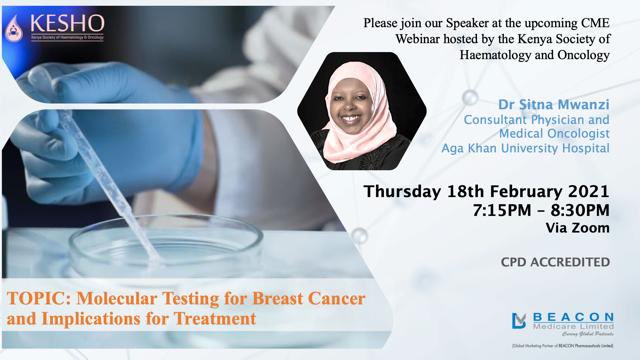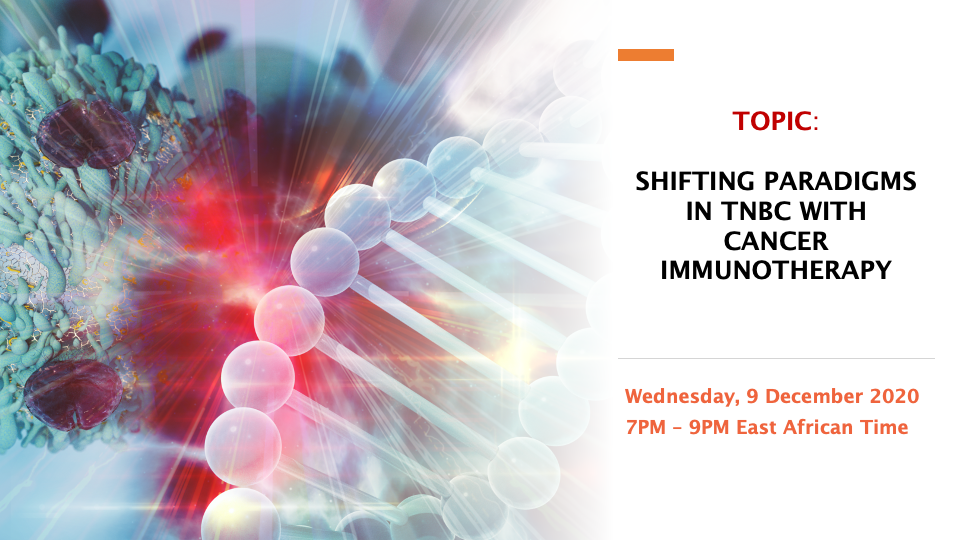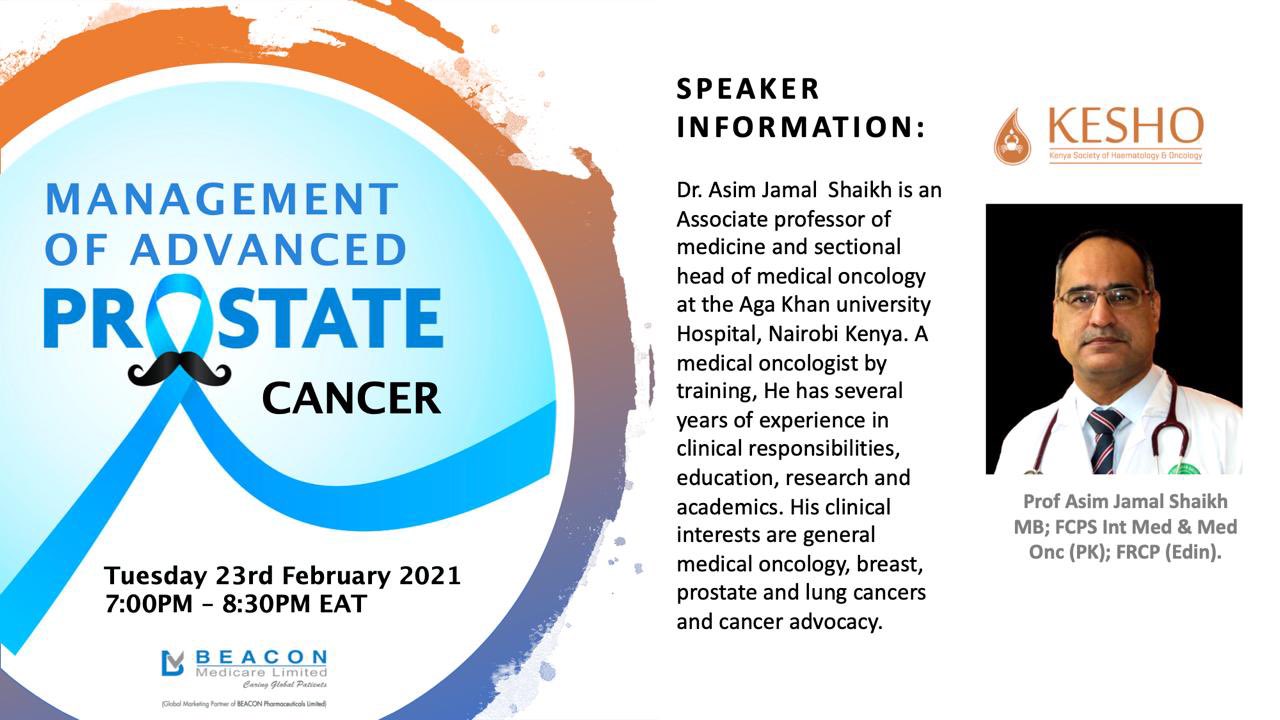
- This event has passed.
Molecular Testing For Breast Cancer and Implications For Treatment
Event Navigation

Moderator: Peter Oyiro, Medical Oncologist Kenyatta National Hospital Teaching and Referral Hospital
Sponsor: Beacon
Presenters:
- Dr. Sitna Mwanzi, Consultant Physician and Medical Oncologist, Aga Khan Hospital, Nairobi
Breast cancer is the most common type of cancer with 6799 new cases and 3107 death in Kenya in 2020. The mean age is 45-51 years. Molecular signature by microarray and immunohistochemistry has classified four molecular subtypes of breast cancer as including luminal A, luminal B, HER2+, triple-negative breast cancer (TNBC), where luminal A and B are the most common molecular signatures The molecular profiles are important prognostic and predictive factors in breast cancer. Luminal A has a better prognosis followed by luminal B, hence patients with these subtypes are likely to be treated with surgery with or without adjuvant radiation therapy. HER2+ has a worse prognosis followed by TNBC, hence patients with these subtypes will require chemotherapy and neoadjuvant. Genetic testing can be recommended in a case where a family member has a known pathogenic variant, or in case of a personal history of breast cancer under the age of 45 years or within 45-60 years. Additionally, genetic testing is recommended in a new diagnosis of metastatic breast cancer, and for young patients TNBC. Management for patients with BRCA pathogenic variant involves continued screening using mammography with tomosynthesis (digital mammography) and discussion on the risk reduction mastectomy and salpingo-oophorectomy. Relatives of such patients should be counseled on screening for pathogenic variants and if possible, they should receive breast cancer screening at the age of 24-29 years, and the screening should be done annually. The major challenges of genetic testing in Kenya include a lack of technical expertise and a shortage of genetic counselors, to address the ethical concerns surrounding genetic counseling. The tests are unavailable in many health care facilities. Furthermore, the tests are not affordable, since the samples have to be shipped to the USA for analysis. Traditionally, the choice of adjuvant therapy was dependent on tumor size, nodal status, receptor status, tumor grade, age of the patient (younger patients were more likely to receive adjuvant chemotherapy). However, more recent understanding has revealed that not all node-negative hormone receptor-positive patients benefit from chemotherapy. Newer gene expression assays are helpful in tailoring treatment to avoid over and under-treatment.
Webinar Recording

